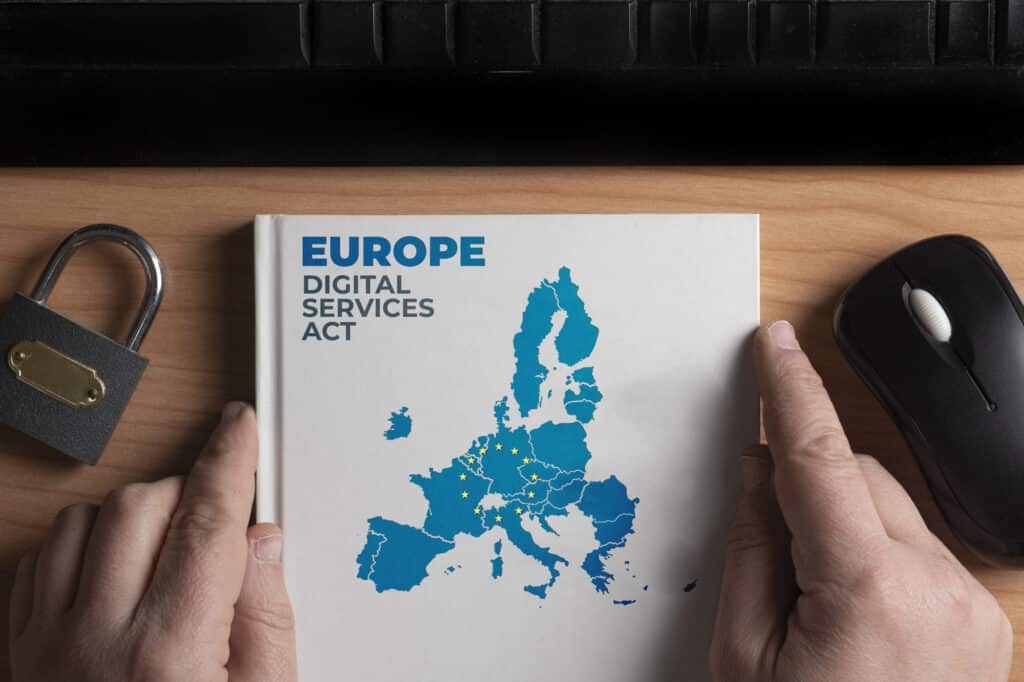The digital world is constantly evolving, and with it new challenges and opportunities emerge. The European Union, recognizing the importance of a safe and responsible online environment, introduced the Digital Services Act (DSA). But what exactly does this mean for businesses, consumers and the future of the internet in Europe? Let’s find out together.
What is the Digital Services Act (DSA)?
The DSA is a set of regulations proposed by the European Union with the aim of modernizing existing regulations for digital services. The main objective is to ensure a safe, transparent and responsible online environment for all users.
The Digital Services Act (DSA), known in Italian as the Digital Services Law and codified as EU Regulation 2022/2065, represents an update and extension of Directive 2000/31/EC on electronic commerce. This new regulation addresses issues such as illegal content, clear advertising and disinformation. The DSA covers all services that act as intermediaries in the transmission or storage of information, including search engines, platforms and hosting services, and specifically targets services offered to citizens of the European Union.
This regulation was introduced in parallel with the Digital Markets Act (DMA) by the European Commission and presented to the EU Parliament and Council on 15 December 2020. Its creation saw the involvement of Margrethe Vestager, European Commissioner for the Digital Agenda, and Thierry Breton, European Commissioner for the Internal Market, both members of the Von der Leyen Commission. The DSA received final approval on October 19, 2022 and will go into effect on February 17, 2024.
Why is the Digital Services Act important?
With the increase in digitalisation, the need to regulate and monitor online activities has become increasingly evident. The DSA aims to:
Protect consumers from illegal or harmful content. Provide a clear and transparent framework for online platforms. Promote innovation and competitiveness in the European digital market.
Who is covered by the DSA?
The DSA applies to a wide range of online services, including:
Hosting services such as cloud and web hosting services. Online platforms such as marketplaces, app stores and social media platforms. Large online platforms that have a broad impact on the European market.
What are the obligations of the Digital Services Act?
Companies that fall within the scope of the DSA will have to:
Take measures to remove or block access to illegal content. Provide complaints and dispute resolution mechanisms for users. Be transparent about their content moderation policies and practices. Cooperate with national authorities in case of violations.
DSA and SEO: what does it mean for companies?
With the introduction of DSA, companies will have to be more careful and proactive in managing online content. This could have implications for SEO in terms of:
Quality of content: Businesses will need to ensure their content is accurate, relevant and does not breach DSA regulations. Transparency: Companies will need to be transparent about how they collect, use and share user data. Responsibility: Companies will have to take responsibility for the content they publish and the actions of their users.
Prospects for the future
The Digital Services Act represents a significant step towards creating a safer and more responsible online environment in Europe. While businesses will need to adapt to these new regulations, the DSA also offers the opportunity to build a stronger, more transparent and user-centric online presence. With a well-planned SEO strategy and adoption of best practices, businesses can not only comply with the DSA, but also benefit from it.
